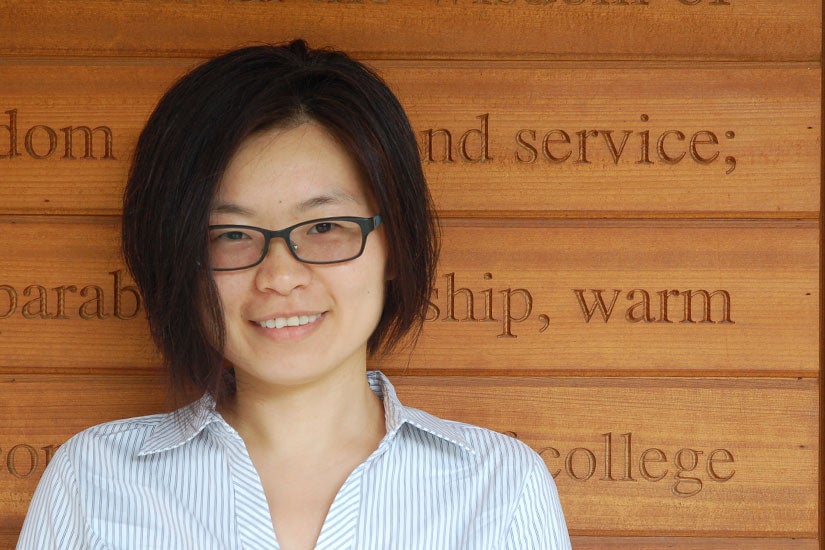When Ning Zhu completed her Ph.D. in neuroscience and left a junior faculty position at the Chinese Academy of Science to pursue a career in computer science, she was perceived as disregarding the expectations of her family and friends.
“Two or three years after starting my Ph.D. program I realized I didn’t enjoy it,” Zhu said. “I would go to classes and do the experiments but I didn’t feel much excitement doing so.”
Zhu was torn between pleasing her family and identifying her passion. “I thought,” she said, “I cannot die without at least trying.” Looking for a solution, Zhu revisited a long-forgotten enthusiasm, computer science (CS). In high school, she wanted to study CS in college but was told by her parents that men outperform women in such disciplines.
“I’m good at understanding complex ideas and creating a comprehensive logical flow. Additionally, I work best with fast, constant feedback. Lastly, I want financial independence, so my next choice must pay reasonably well. The combination of these three factors led me to computer science,” she said.
Next, she looked for a master’s program that did not require a bachelor’s degree in computer science. Rice University went to the top of her list because of its small class size, but Zhu doubted she would be admitted.
In fact, Rice offered Zhu a place in its professional master’s program. While weighing her options, she met Yanfei Wu, who graduated from Rice with a master’s degree in CS in 2014, while he was visiting China.
“Yanfei is an extraordinary guy who switched from math to CS and then received offers from several top companies,” she said. “What impressed me most was why he picked Facebook over all the other companies based on his own analysis of the company’s financial performance and business strategies.”
While discussing the Rice CS program with Zhu, Wu described a course that had influenced his analytical decision-making process and taught him how to evaluate potential employers. “I admire people who know exactly why they choose to do something. I was amazed at how clear his choice was and how Rice education shaped his decision-making skills. Immediately my preference for Rice became an emotional tie instead of a logical one.”
After completing three semesters of classes, Zhu was enthusiastic about the way computer scientists think about the world. In his object-oriented programming course, Stephen Wong, lecturer in CS, often repeated: “I’m not only teaching you how to code, but also the philosophy of solving problems. Rice wants to produce leaders who know exactly why they do things, not soldiers.”
Zhu said, “This problem-solving philosophy is transferrable to all situations. This is what I want to learn.” Most courses justify and explain why actions are taken, and critically evaluate which solutions are the most effective in solving problems.
“In general, I love solving problems. It’s like a game for me. CS is all about how to solve problems universally. I see CS as a great way to influence people and help them,” said Zhu, who emphasized that her goal has always been helping people. Creating tools such as a behavioral intervention app would help the millions, while a psychologist can treat only one person at a time.
Zhu is excited to combine her knowledge of neurobiology and computer science. As digital devices have become prevalent and accessible, their potential as extensions or enhancements of the human brain has grown. Studies of behavioral interventions have shown that external reminders help people comply with their intentions, so a mobile app implementing a behavioral intervention may be the most effective and affordable way to deal with such problems.
CS has taught Zhu important life lessons. Wong has been teaching a philosophy of “find the right thing to do and then figure out how to do it,” which encouraged her to leave her comfort zone and pursuit her passion.
She learned much while earning her Ph.D. in neurobiology, but Zhu strongly believes that “the magnitude that CS can amplify the impact of technology in any field is incomparable.”

